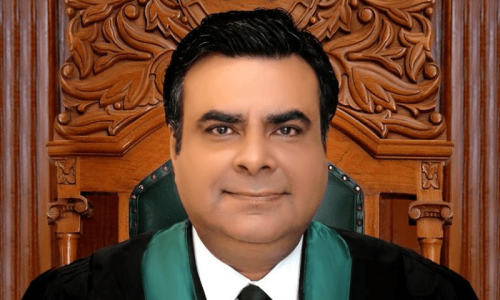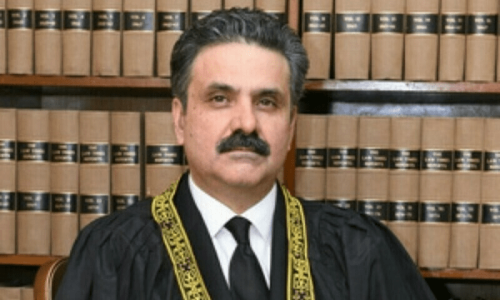HYDERABAD, Aug 31: Professor (Dr) Zhang Li has said a more balanced and affirmative approach towards addressing the root causes of terrorism and violent insurgencies will receive more attention.
Dr Li, director of the Centre of South Asia-West China Co-operation and Development Studies, Sichuan University, China, said this in his paper on "Terrorism in Southeast Asia and its Implications for China" on the second and last day of a conference on "Human Security: Global and Regional Perspectives" at the University of Sindh on Tuesday.
The morning session focussed on east and southeast Asia while the second and final session discussed the Middle East situation. "Increasing threats of terrorism in Southeast Asia and regional and global approaches have had profound impacts on China's security consideration," Dr Li said.
He said China and the Asean intended to enhance the capacity of cooperation and coordination to target terrorism and trans- national crimes. He said Bali attacks and several other major terror assaults throughout Southeast Asia had underlined the fact that the region had emerged as a launching ground for global-linked terrorism.
He dwelt at length on history of terrorism in Southeast Asia. Former ambassador Maqbool A. Bhatti in his paper on "Chain's Perspective on Human Security" said the world's most populous country was likely to influence concepts of human security, both at regional and global levels.
He said that issues of national security, China followed a principled approach and did not support international order, based on force. He was of the opinion that as China became stronger, it would use its influence for a more just order, in which basic needs of people were addressed.
On the subject of East and Southeast Asia, Professor Siraj Jamal Siddiqui read a paper on "Violence and Displacement in Southeast Asia", Dr Lutfullah Mangi spoke on "Japan-Korean Peninsula: Human Security Issues" and Fazalur Rehman spoke on "Impact of Terror War on Muslim Minorities in Southeast Asia".
On the Middle East issue, Dr Alexander Nikitin, first vice- president of the Political Science Association and director of the Centre for Political and International Studies, Greece, presented a paper on "Interface between Global and Regional, Political/ Security Consequences of Middle East Crisis".
According to him, the United Nations fixed temporal and sometimes tactical authority on major powers at the time of international crisis while the very political situation and the situation on the war front changed constantly.
He said that in the early 20th century, Russia and the US were not ready to rely only on the UN mechanism of settlement of Middle East and other Asian conflicts. He said the great powers undertook manoeuvres, both unilateral and multilateral, and steps mostly on opposite sides.
Dr Nikitin wondered which circumstances, strategy or tactics could bring the two countries into an alliance, or at least understanding, for a peaceful settlement of the Middle East issue.
He said that goals of Russia and the West tactically coincided in Afghanistan due to fear of the radical Taliban regime and the alliance was cemented by the West's change of position regarding Chechnya.
He said that after September 11, 2002, an unusual Russian-Western unanimity was witnessed, which developed cracks in the case of Iraq when Russia joined Germany and France against the political line of the US and the UK.
In the Middle East case, the scholar suggested, the great powers should find, and support, forces and groupings oriented towards compromise. The others who read papers on the Middle East issue included Zulfiqar Halepoto, who spoke on "Democratization and Human Rights in Middle East", and Dr Abdul Latif Tunio, who spoke on "Israeli Policy of Ghettolization of Palestinians".
In the evening session, Dr Laura Yerekesheva and Dr Sanat Kushkumbayer of Kazakhstan read papers on "Migration, Identity and Human Security in Central Asia" and "Modern Borders in Central Asia: History, Ethnicity, Human Security" respectively.















































Dear visitor, the comments section is undergoing an overhaul and will return soon.